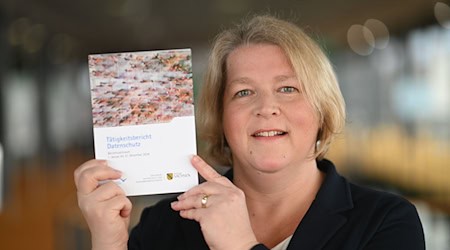Saxony has seen a significant increase in companies in the field of artificial intelligence (AI). While there were 80 in 2019, their number has more than doubled to 196. Around three quarters of them are also headquartered in the Free State, according to an analysis conducted by the Digital Agency Saxony on behalf of the Ministry of Economic Affairs. It was presented on Tuesday at the start of the 3rd Saxon AI Congress in Chemnitz. In a regional comparison, Dresden is clearly ahead in this future-oriented topic: 43 percent of Saxony's AI companies are based in the state capital, but Leipzig and Chemnitz are also popular. This was mainly due to the proximity to the universities in these three major cities.
The study does not provide precise information on turnover and jobs. However, the proportion of companies with an annual turnover of less than 10 million euros is relatively high (60 percent). This is because many companies have only recently been founded, it said.
According to the study, the companies offer hardware, software and services related to AI. These include the automation of industrial production, autonomous driving and the development and manufacture of semiconductor products. There is close integration with research. With more than 160 professorships, centers, non-university institutes and research associations, AI research in Saxony is very well positioned compared to the rest of Germany. Almost 60 percent of these institutions focus on applied research, in particular on algorithms, data and AI hardware.
"Saxony is well positioned for the AI age," said Economics Minister Martin Dulig (SPD). However, the Free State should not stand still. For the future, it is important to focus on certain areas. Above all, it is important to establish links with existing key sectors such as mechanical and plant engineering, the automotive industry and logistics. In addition, the still low proportion of women in this segment must be increased and tailor-made training and further education opportunities must be created in a wide range of sectors. AI is not so much a job engine as a job guarantee, explained Dulig. That is why Saxony must seize the opportunities offered by this technology.
At the AI Congress in Chemnitz on Tuesday and Wednesday, government representatives wanted to talk to experts from business, science, education and the judiciary about how AI can become an everyday supporter. There was talk of around 300 guests and exhibitors at the congress.
Copyright 2024, dpa (www.dpa.de). All rights reserved










